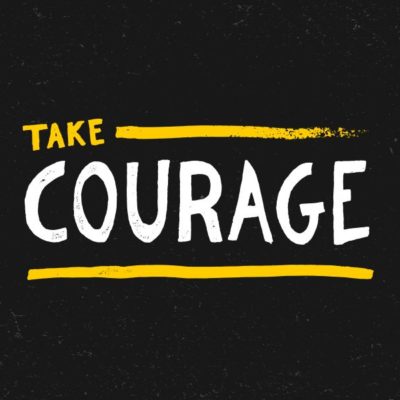Courage, the Backbone of Leadership
Courage, the Backbone of Leadership https://csuiteold.c-suitenetwork.com/advisors/wp-content/themes/csadvisore/images/empty/thumbnail.jpg 150 150 Mark Hinderliter https://secure.gravatar.com/avatar/8be13cd9482c8f3e6594f8b51001ca4b?s=96&d=mm&r=g
Several years ago, I hosted a weekly radio show called “Lessons in Leadership.” It was an interview format where I talked with high-level leaders from many different industries and geographies. One of my guests was Gus Lee, the author of Courage: The Backbone of Leadership. Before writing the book, Gus spent decades in leadership roles, including as a young Army Officer during the Viet Nam war.
Courage in Leadership
One of my favorite quotes from Gus was, “A leader without courage is about as useful as a rowboat in a bullfight.” Funny, and true in my experience. Leaders, if they are effective, routinely do things that can be very uncomfortable. Having tough conversations, confronting bad behavior, holding people accountable, challenging the status quo, choosing principle over short-term profit, and taking smart business risks with no guarantee of success. One of the most important acts of courage is owning our own mistakes and failures. Another radio show guest told me that one of the signs of a courageous leader is giving our teams the credit when things go well and taking the heat when they don’t.
Courage: Hardwired or Developed?
One of my questions to Gus was, “Is courage hardwired or can we develop courage muscles?” His unequivocal answer was, “Courage is 100% learned.” Gus’ point of view tracked with my own experience as a young manager. I was reluctant to have challenging conversations. I didn’t confront poor performance or bad behavior. On one occasion, I failed to give a team member the feedback they needed to improve, and it became a real problem. I was embarrassed. My job was to help this team member be successful and I fell short. After that, I made the commitment to give my team members the feedback they need and deserve. In knew I had to develop some courage muscles.
Courageous Conversations
Over my career, I came to realize that most of the leadership situations that require courage is having tough conversations. Confronting issues head-on is necessary to solving gnarly problems and moving forward. Avoiding these issues almost always has a negative consequence. The problem festers. The wrong message is sent to all. People may lose respect for us. Even more damaging, we lose respect for ourselves.
Wisdom from a Colleague
I remember being in an executive meeting with the CEO (Phil) and several senior leaders. We were discussing a topic and the CEO expressed a point of view that was likely out of step with the rest of the group. Silence. Finally, a colleague named Bill spoke up. Bill said, “Phil, I see this issue differently. I you open to hearing it?” It was a respectful, non-confrontational way of creating a conversation that was really important. Phil, to his credit, said, “Absolutely Bill. Let’s talk.” One of my own variations of Bill’s technique is to ask permission to give feedback. “Bill, are you open to some feedback?” The answer is always yes, and has the effect of diffusing defensiveness that can come with feedback.
Three Acts of Courage – a great place to start.
- Be Decisive. What decisions are you avoiding that you should be making? Why are you holding back? What is the cost of not deciding?
- Tackle your toughest challenge. What conversation am I dodging? What is the impact of not having it?
- Challenge the Status Quo. What isn’t working any longer? It may be creating inefficiency, poor execution, or adding costs?
Let me share an insight and a couple of tips that have helped me develop courage muscles.
- The insight is that the hardest part of having a tough, but necessary conversation is starting it.
- The first tip is to be very intentional about the conversation. Be clear about what you are trying to achieve – and why it matters. Consider Susan Scott’s advice from her book “Fierce Conversations.” Approach the conversation with the goals of solving the problem and maintaining the relationship.
- The second tip is to prepare for opening the conversation and then – get started. It will get easier once you get going.
Why Courage Matters
Organizations that don’t have a culture of candor don’t deal in reality. They are making critical decisions by looking into the distorted reality of a funhouse mirror. Organizations that don’t take on the tough problems stay stuck. Meetings become Groundhog Day – talking about same issues over and again without moving forward. Courageous conversations help us move forward when things get tough. Leaders who speak and act with courage empower others to do the same. Winston Churchill’s quote has always resonated with me. “Courage is the first of human qualities because it is the one that guarantees all others.” True in life, true in leadership.
Dr. Mark Hinderliter works with clients to develop people strategies that align with their business strategy. His experience as a Senior Vice President for a billion-dollar global enterprise along with a PhD in Organization and Management are a unique fusion of real-world experience and academic credentials. His superpowers are executive coaching and leadership development.
Mark is a United States Army Veteran. He is the creator of the leadership program Diamond Quality Leadership: Leadership Skills for Today’s Workforce.
You can follow Mark on LinkedIn at https://www.linkedin.com/in/markhinderliter/


